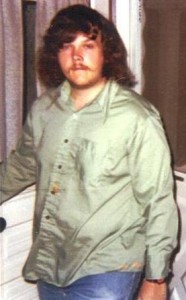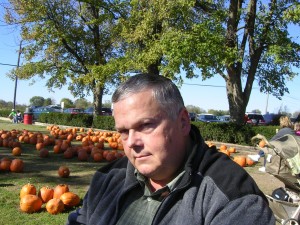This was a letter I wrote after a particularly bad series of encounters with a person I greatly respected for years. I wrote it a few months ago and did not have the courage to finish it or post it back then. I’ve finally finished it, and after much internal debate, have finally decided to publish it.
Dear Sir:
You have no idea what I would give to be “normal”. To keep a regular schedule. To work a regular job. To have a family. To have all of the regular things that you probably have in your life, that probably bore you to tears.
I used to work normal, monotonous jobs. I was happy with them. I never had big aspirations, a simple 9-5 with a livable salary was fine with me. I babysat, I worked as an envelope stuffer, receptionist, customer support rep, tech support rep, database administrator, programmer, consultant, and did various odd jobs. I was happy with most of them. I would be happy with any of them now. My bosses loved me. I took less pay than I probably should have for the work I was doing, but I never really cared.
Sometimes it feels like my entire life has been one long string of learning to give up the things that I love. I was never the couch potato type. As a child, I loved baseball, basketball, bike riding, crossing monkey bars, jumping rope, swimming, and just about anything else that involved lots of physical activity. But as my grip got worse I had to give up the monkey bars; as the injuries piled up from falls I had to stop running and jumping, no more basketball, baseball, gym class; as my legs got weaker stairs became more and more impossible, out went climbing, no more slides, I had to move to a new school with less steps.
As the pain levels rose and nerve function declined I had to start making adaptations to try to hold on to things in my life, in came braces, crutches, canes, wheelchairs. I had to start counting my steps, weighing every movement to see what was required and what I could sit out. As my hands got worse I started typing everything I could, I changed my signature to a few initials so I could still sign paperwork on bad days. When I ran a stoplight, because I couldn’t move my foot to the brake on time, I got hand controls installed on my car.
I’ve spent my entire life trying to find new ways to work around my physical limitations. Every time I lose more function, I struggle until I find a new way to still do the things I want and have to do. But little by little I’ve had to give up things, because there simply wasn’t another workaround. Despite all of this loss there have been a few islands of progress thrown in, but they usually come out more like 2 steps forward, 3 steps back.
When I was in college, I finally got my neurologist to help me look into medications that might help. A muscle relaxant dropped my pain levels so much that I was able to concentrate on my school work again, but he pulled me off of them after a few months, when he saw that the muscles in my calves had dropped significant mass, I was left with serious withdrawal symptoms (I didn’t know what they were at the time, I had no idea the med was addictive). Also while in college, I discovered lightweight wheelchairs and wheelchair sports. I was able to get around well for the first time in years, and I was even able to start playing wheelchair basketball. Unfortunately, so much wheelchair use caused my hands to atrophy. The withdrawal, combined with my hand issues, combined with the severe fatigue and other symptoms that came with cold weather led to my having to drop out of college altogether.
I eventually found a neurologist that would work with me on meds again and we finally found my miracle drug, which turned out to be Tegretol of all things. My nerve function increased, and my pain levels dropped lower than they had been in years. By all appearances things were much better, and I had a few great years. Until, it seems, the Tegretol caused another disorder that led to frightening disorientation, eye problems, and the need for 2 different surgeries before I kind of figured out part of what was happening and learned some ways to cope.
After I had been away from college for a while, using my wheelchair a lot but not nearly as much as I had then, my hands started to regain some of the muscle mass they’d lost, and after that I realized that, given time and rest, my nerves were actually able to recover some function after injury. This is something I was taught could not happen, and it makes little sense given the fact that my neuropathy is progressive, but my nerves apparently have the same philosophy I do, and they keep finding workarounds that baffle my doctors. (My doctors have long been fascinated by my nerve studies, because the amount of function I have makes no sense at all given the extensive nerve damage.) Armed with this knowledge, though, I started trying to use my legs more again, and discovered, to my surprise, that I actually could, as long as I was very careful about which ways, how much and how often I used them. It was around this time that my right arm just stopped working one day, out of the blue, due to a nerve entrapment that may or may not be related to my genetic neuropathy.
Through all of the setbacks and heartaches, though, I did my best to find a workaround every time. For most of the physical issues, I have managed so far. But the one thing I cannot manage is the fatigue. My muscles are very healthy and very strong, my neurologist would tell you I’m built like a tank. When my nerves are capable of telling them to move they do, when my nerves are capable of telling them to hold, they hold, and when my nerves are capable of telling them to let go, they let go. But my nerves are damaged, inconsistent, and constantly under attack from my immune system. My nerves have nearly forgotten how to send the “off” signal altogether. My muscles are randomly being told to tense or move and almost never being told to release. This keeps me strong despite the nerve damage that would normally cause atrophy, it also keeps me in pain and exhausted. The solution is to take medications that dampen the signals and tell the muscles to relax anyway. Of course those are also meds that themselves cause fatigue.
What you do not understand, is that the physical issues I have are not the real disability. The pain levels and the fatigue are the real disability. I simply cannot function day to day, with the amount of pain I have, without meds. I simply cannot function, with the amount of fatigue I have, without meds. But the meds that help the pain also increase the fatigue. The meds that decrease the fatigue cause a different type of fatigue, which means the best I can do is find a middle ground between the two, where I can sort of function… and sleep, a lot. Since my disorder is auto-immune, I also go through cycles where my immune system is busy attacking me. This causes the type of fatigue you get when you have the flu, on top of everything else.
So I require 10 hours of sleep on the good days, and I go through days, sometimes weeks, where I simply cannot stay awake. It is not rare for me to sleep 3 days straight, just getting up long enough to visit the bathroom and refill my water bottle. This is not laziness. When I was in school, I handled this by staying home on the bad days. I cried from the pain until I could eventually fall asleep at night, and my parents or siblings fought tooth and nail to get me to wake up for school the next morning. On the good days I got permission from my teachers to listen to music or read books during class, so that I could distract myself into staying awake enough to hear what was taught (and I still got great grades).
When I was working full time, I set multiple alarms to wake me up in the mornings. I handled the fatigue at first by sleeping during my lunch breaks, when the disorder progressed to the point that wasn’t enough, I dropped a few hours on my work week, when that wasn’t enough I took Wednesdays off so that I could sleep a day in the middle of the week. But it got to the point where that still wasn’t enough, I was regularly falling asleep at work. My employers generally let me get by with this, because I was doing great work in spite of it. But eventually it got to be too much, so I stopped trying to work a regular job and decided to do consulting work instead.
When my arm went out, I was at a complete loss. I had spent my entire life finding work-arounds for my legs and my hands, but I had always been able to count on my upper arm strength. After all of the things I had had to give up already, I simply had no idea how I was going to function without both upper arms working. The pain in my arm was off the charts, and supination and grip were impossible. I couldn’t drive safely. I couldn’t type. I couldn’t get my wheelchair out of the car. I couldn’t use my crutches. I had another medical problem caused by the meds at the time that left me unable to sit up, so I had to spend most of my time laying down. I had a major project underway that I simply couldn’t complete, and my customers lost a tens of thousands of dollars because of it. I had started back to school to finish my degree but had to drop out again.
When my arm started to recover, I went to the vocational rehabilitation department for help figuring out what I could do. They had no answers. They refused to help me find anything, because they felt working was beyond hope for me. They talked to social security, who had a fit because they thought I should have been on full disability years before. Where most people are denied those disability benefits, I was forced onto them.
I was not willing to give up, but I was not able to keep living in California. I moved back to Ohio, against my better judgment, because I thought I would have a better support system here, the cost of living is a lot lower, and I figured I’d eventually find another work around that would let me keep being productive. I also knew there was a surgery that could help my arm, and I figured someone would be willing to do it.
Fast forward a few years, and most of the people I encounter seem to see a fiercely independent girl that can take care of herself. Because I live alone, and don’t really have a support system here at all, I simply don’t have the ability to venture out into public on days when I can’t function well. Because most homes around here are not accessible, I simply don’t visit you unless I’m doing well enough to handle it. Unfortunately, this has led to the perception that I must always be doing as well as I am when you see me out and about, which is very far from anything close to the truth. The days I venture out are my very best days, and the act of venturing out generally takes quite a toll on me once I return home, making the following days even worse than they might have been.
It is all I can do to keep up with the necessities of cleaning, laundry, yard work and such, but I do as well as I can. I have always been independent and I want to stay that way as much as I possibly can. And I desperately want to be supporting myself as well, despite the situation I’m in.
So I started my own business making toys. It probably wasn’t the best idea in retrospect, to start a business where I had to use my hands, but it was the best idea I had, and at least it was something. At the time I thought that my arm would recover, and I could make things on the good days and sell them on the bad days. The business has done well, all things considered, but without startup money a business can only grow so fast. With weeks and months where I can’t be productive, it’s bound to grow slowly, and with an entire year where I had to shut down because of uncertainty in the toy safety laws, I lost all momentum and had to start over. But assuming I could keep plugging away and didn’t lose more function, I really believed I could build the business into something that would not only support me, but allow me to hire others. That was my goal.
But that was not good enough for you. You told people behind my back that I’m stealing from you by collecting disability. You joke about how I’m taking advantage of you and robbing you blind. You think I’m just fat and lazy and milking the system. But you’re only showing your ignorance. You’ve never even asked me what’s wrong.
I would give anything to have a regular job, or even go back to consulting, but what kind of job do you take when you don’t know from day to day which limbs will be functioning? How do you look an employer in the eye and say you’re right for the job when you don’t know whether you’ll be able to stay awake for more than 2 or 3 hours in any given day? What kind of person takes a job, knowing full well that they probably won’t be able to handle the schedule? What kind of person takes a job, when they know they may have to call in sick for an entire week? What kind of person takes a contract job, only to watch their customers lose tens of thousands of dollars when they can’t make the deadline? Do you really want me lying to get a job I’ll end up losing anyway, when so many better suited workers are desperate for jobs right now?
Perhaps you would prefer that I grabbed a piece of cardboard and sat on a street corner, begging for my living. You could watch me rock and moan in pain, off my meds for lack of insurance, with uncontrollable spasms. You could laugh at me as I collapsed, while trying to walk somewhere to find a place to sleep. Perhaps then you would realize how bad off I am without these supports, perhaps you would be disgusted, and think that someone should do something to help people like this. More likely, you would just assume I was a drug addict, on welfare, and would rant more about how people like me are stealing from you and robbing you blind.
You have been blessed. You have a loving family, a good job, and have come through life relatively unscathed, with your abilities intact. Sure, you have had setbacks, you have had injuries, you have pain to live with, but much of that is due to hard living and reckless decisions in your youth. Perhaps you are hard on yourself. Perhaps you blame yourself for the pain you’re in, and that makes you want to blame others for their pain. But not every situation is the same.
You did not come out on top because you are smarter, or braver, or worked harder to overcome your struggles than everyone else (though you are smart, and you may be brave, and you do work hard, and that is commendable). You came out ahead largely because good people were praying for you, supporting you during your down times, and giving you second chances when you screwed up. Instead of thanking God for your good fortune and passing on some of the goodwill, you’d prefer to rub it in the faces of those who have not been so fortunate. And instead of offering a simple word of support, that could do more good than you’d ever imagine, you’d rather try to break someone who’s already down.
I wonder if your bitterness towards those of us who are struggling is blinding you to your own blessings. Can you even enjoy the privileged life you lead? I feel sorry for you. I wish I could help, but you’re too busy pushing me down to see that you are drowning.
Sincerely,
Me.




